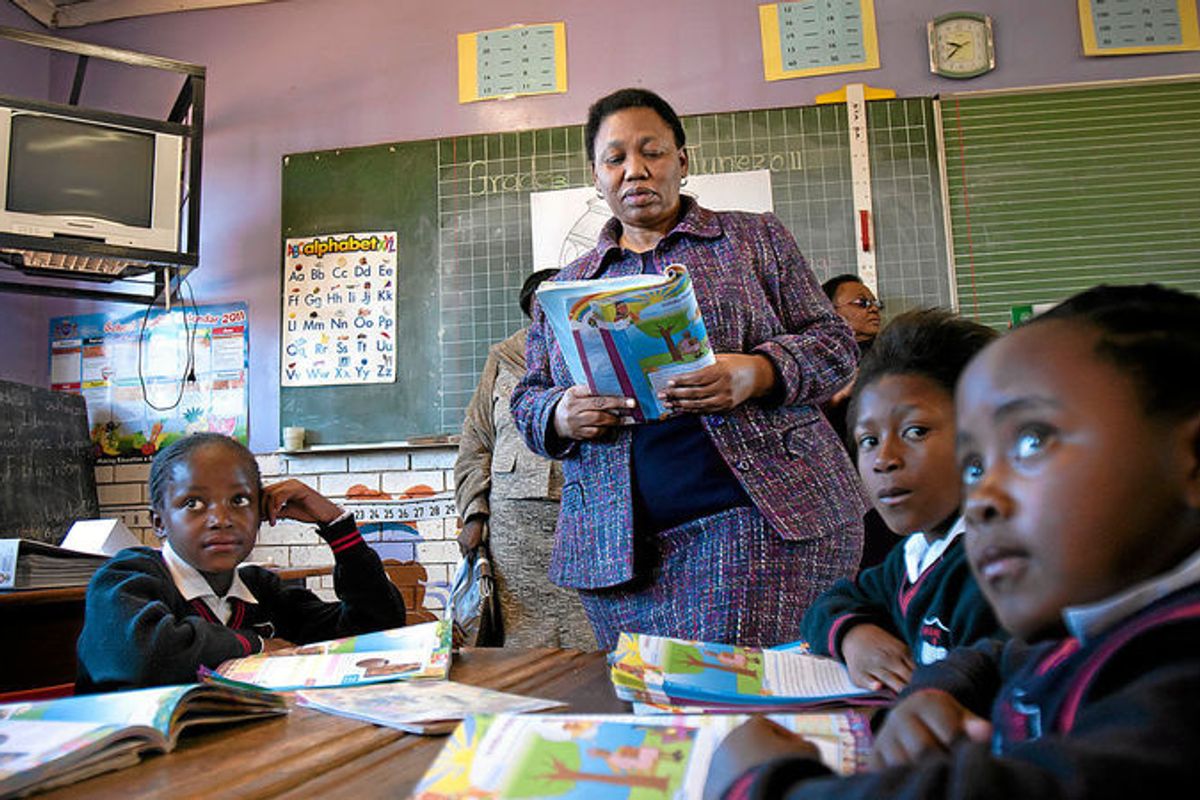South African Education System is Finally Making History Curriculum More Afrocentric
The history of Africa and South Africa in particular will no longer be taught as a mere afterthought.

The Minister of Basic Education, Angie Motshekga, has announced how her department's task team is set to make the history taught in both primary and secondary South African schools more Afrocentric. The task team is set to develop a new curriculum, screen current educational materials to ensure they are in alignment with the new curriculum and subsequently establish history teacher development programs.
For decades, South African school children have been taught, with great depth, about the French Revolution, the Treaty of Versailles, World War I and II, the Spanish Inquisition and many other monumental European events. And yet, their own history, has been taught as if they were tourists, hardly interrogated with the same rigor as that of European history and treated more as an afterthought.
Responding to why the decision is an important one for South African schoolchildren, the task team said that there was not enough emphasis that was placed on indigenous history of South Africa as well as pre colonial language. In addition, they went on to say:
"The consequences are that most of these students struggle at university because the content is pitched at a higher, sophisticated level — taking for granted that students have necessary skills to unpack it."
While this is true, the decision is crucial not just in terms of school children who plan on studying history at a tertiary level and thus need to adequately grasp the content in the requisite depth. It is also crucial that all South Africans understand the deep wounds of this country so that moving forward, they can truly understand authentic ways of engaging with difficult conversations especially around race.
One Twitter user expressed, and quite insultingly, how he felt that the rewriting of history textbooks would not change history as it stands. As a white man, the victors who wrote history and left out the parts they didn't feel were important, it is unsurprising he should feel this way.
Another Twitter user, again a white man, expressed how he feels the move towards a more Afrocentric history curriculum is a regression towards history taught during Apartheid times.
South Africans have a hard time connecting with their painful past as a country because not only does society shy away (and even censors at times) from having these thorny conversations, they teach nothing of it in the classrooms. This is true of the teaching of English in the classrooms. Works of Shakespeare and Dickens are held in the highest esteem while school children only ever discover (if at all) the works of Chinua Achebe, Ngugi wa Thiong'o and say, Tsitsi Dangaremga, much later on.
The task team also added that:
"The history of Africa needs to be given the depth and breadth it deserves. The archaeological past needs to be reintroduced at a higher level, and dealt with in a more sophisticated manner."

